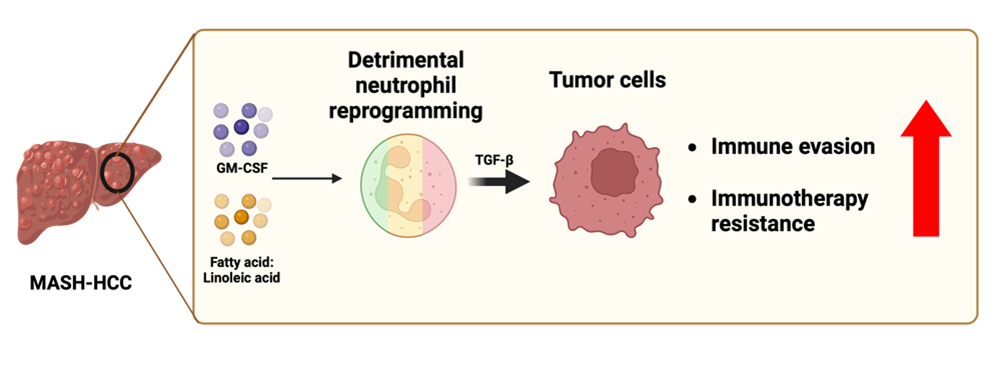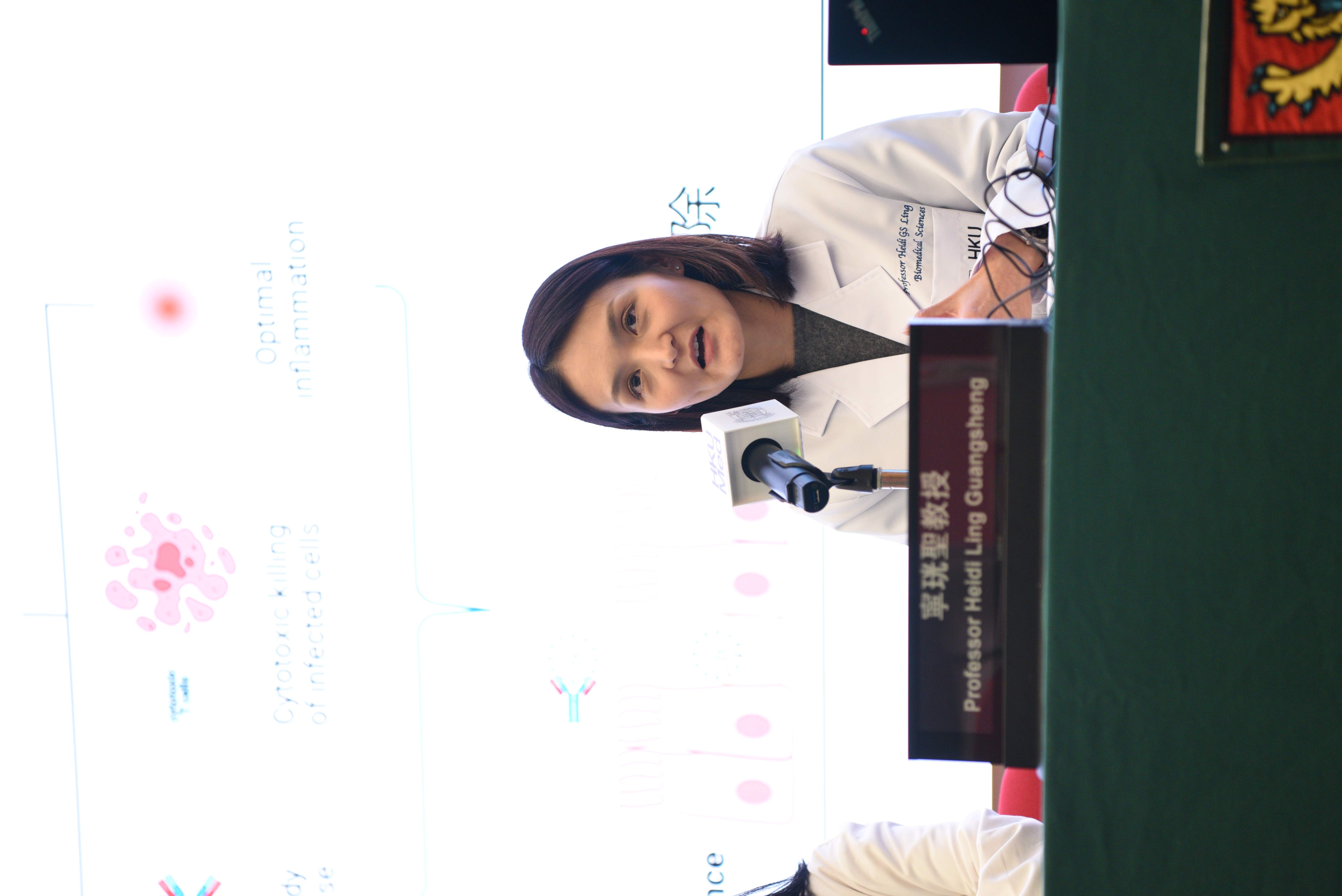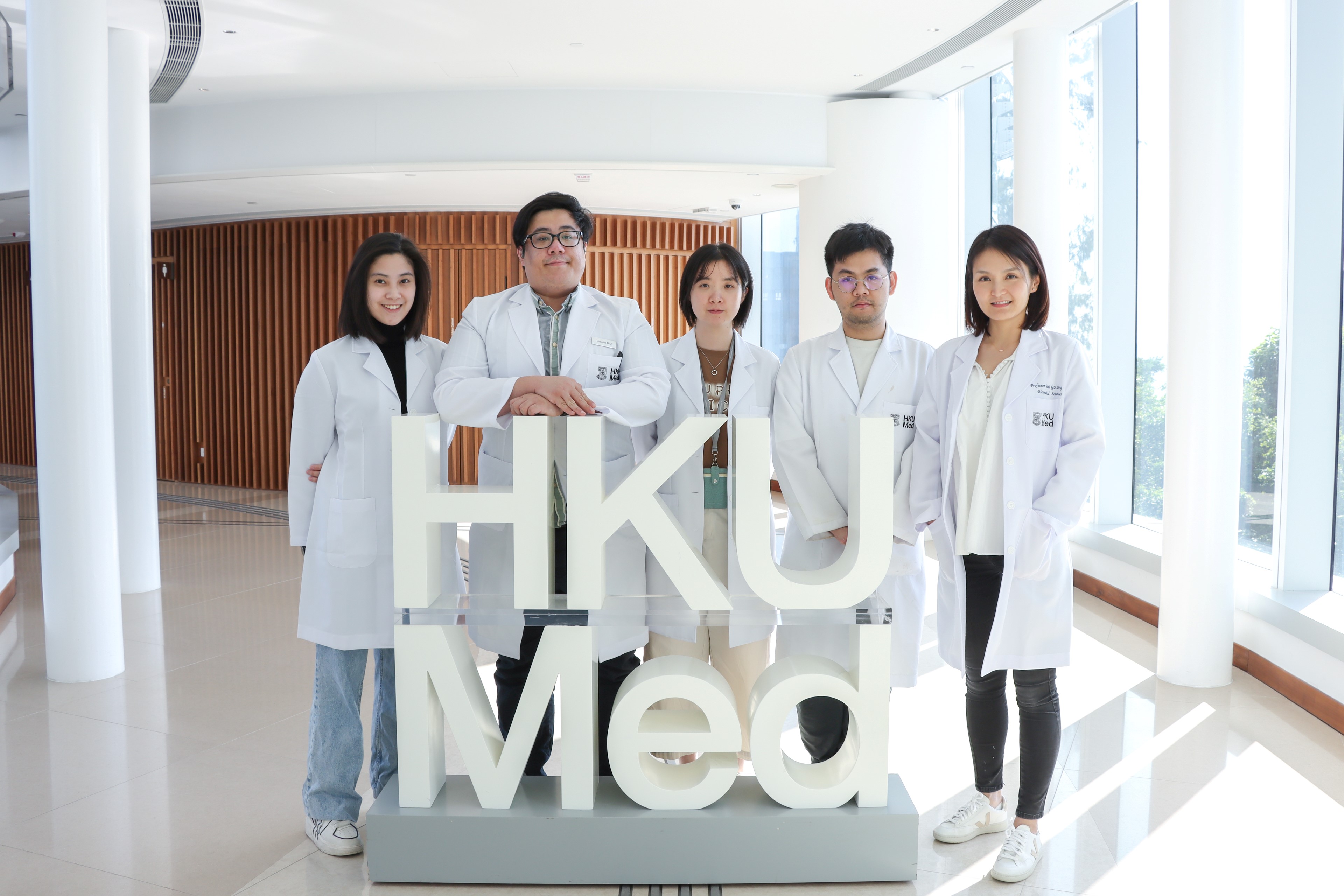04 June 2025
Modern unhealthy lifestyles and dietary habits have led to a yearly increase in the incidence of metabolism-related liver cancer. A research team from the LKS Faculty of Medicine at the University of Hong Kong (HKUMed), in collaboration with Peking University (PKU), found that fats in liver cancer can reprogramme immune cells, causing them to malfunction and driving resistance to current first-line liver-cancer treatments. The findings were published in the Journal of Experimental Medicine [link to publication].
Background
Liver cancer is the fifth leading cause of cancer-related deaths, posing a significant health challenge in Hong Kong. The high mortality rate is due largely to late-stage detection, coupled with minimal effectiveness of current treatment options for advanced stages of the disease. Recent advancements in immune checkpoint blockade (ICB) therapy, a form of immunotherapy, have revolutionised cancer care, with promising results in various types of cancer. Consequently, ICB therapy has emerged as the first-line treatment option for patients with advanced hepatocellular carcinoma (HCC). Unfortunately, this approach benefits only about 30% of liver-cancer patients, and even for those who respond positively, the extension in the survival rate is typically less than a year.
Liver cancer has various subtypes based on its etiology. One particularly concerning subtype is ‘metabolic dysfunction-associated steatohepatitis hepatocellular carcinoma’ (MASH-HCC). Patients with MASH-HCC are particularly resistant to ICB therapy; identifying the root cause remains elusive. MASH-HCC patients tend to have excessive fat buildup in their livers and tumours. Unhealthy lifestyle habits, such as lack of exercise and high-fat diets, contribute to abnormal fat buildup. This problem is further amplified by the increasing prevalence of obesity and diabetes in Hong Kong, leading to a rising incidence of MASH-HCC. The poor response of MASH-HCC to ICB therapy is a concerning healthcare challenge. To tackle this unmet clinical need, the HKUMed-PKU research team is dedicated to investigating the factors causing immunotherapy resistance in these patients.
Research findings
The research team discovered that fat in the tumours worked in concert with other factors in the microenvironment, such as GM-CSF cytokines, to reprogramme the immune cells, leading to differentiation into harmful cells in patients. The team found that MASH-HCC patients and corresponding mouse models with fatty liver conditions developed a unique population of neutrophils capable of producing a tumour-supporting factor that helps tumour cells evade immune attack, thereby fostering resistance to immunotherapies. By either depleting these neutrophils or hindering their development, the researchers found that this approach effectively reinstated the response to ICB therapy in MASH-HCC models, confirming the crucial role of these neutrophils in ICB therapy.
Significance of the research
MASH-HCC is the fastest-growing subtype of liver cancer in Hong Kong and around the globe. Crucially, patients with MASH-HCC have less favourable treatment outcomes than those with other types of liver cancer. This research spearheaded by the HKU-PKU team sheds light on the damaging impact of excess fat in liver cancer. Importantly, their investigation pinpointed a potential target that could improve the response to immunotherapy in patients with MASH-HCC.
‘Our research underscores the importance of healthy diets and lifestyle choices for liver protection. For those currently battling MASH-HCC, our findings lay the groundwork for improved combinational immunotherapy strategies to enhance their treatment prognosis,’ said Professor Heidi Ling Guang-sheng, Assistant Professor in the School of Biomedical Sciences, HKUMed.
About the research team
The research was led by Professor Heidi Ling Guang-sheng, Assistant Professor, School of Biomedical Sciences, HKUMed; and Professor Xue Ruidong, Assistant Professor, Yunnan Baiyao International Medical Research Center and First Hospital Tumour Transformation Research Centre, Peking University. The first authors were Nickolas Teo Jia-ming, PhD student from the School of Biomedical Sciences, HKUMed.
Acknowledgements
The research was supported by grants from the General Research Fund, the RGC Research Fellow Scheme and the Research Impact Fund under the Research Grants Council of Hong Kong; the Croucher Senior Research Fellowship; the National Natural Science Foundation of China; the National Key Research and Development Project of China; the Beijing Municipal Natural Science Foundation; the Beijing Nova Program; and Clinical Medicine Plus X Young Scholars Project of Peking University.
Media enquiries
Please contact LKS Faculty of Medicine of The University of Hong Kong by email (medmedia@hku.hk).




Follow HKUMed